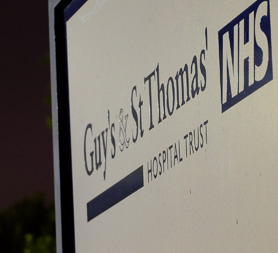Health Secretary: NHS receiving unprecedented resources
Health Secretary Andrew Lansley tells MPs there is an “unprecedented level of resources available to the NHS” as a Channel 4 News FactCheck finds evidence of new cuts.
Mr Lansley was appearing before the Commons Health Select Committee – as Channel 4 News published a FactCheck analysis looking at the pressures facing the NHS and examining the Government’s pledge to increase its funding in real terms.
In his spending review in October, the Chancellor George Osborne announced that the NHS would receive a real-terms rise of 0.1 per cent a year, but FactCheck has found that the Government’s pledge could be blown off course if inflation is higher than forecast.
Some commentators have also argued that as £1bn of the NHS budget has been allocated to social care – traditionally a council responsibility – the health service is not receiving a real-terms rise.
Mr Lansley said years of real-terms increases of more than four per cent meant the NHS was better funded than it had ever been.
“The NHS has a level of resources greater than it’s ever seen in the past.” Health Secretary Andrew Lansley
“We start with a level of resources …. that is far in excess of what it was in real terms compared with the past. That takes us to a position this financial year where the NHS has a level of resources greater than it’s ever seen in the past.”
Department of Health statement
The Department of Health told Channel 4 News the NHS resource budget (excluding capital spending, which is being cut) would rise in real terms even if the £1bn for social care was excluded.
A spokesperson said: “Even were we to omit this extra funding, NHS resource spending would still rise by 0.1 per cent a year in real terms. This is all set out clearly enough in the Treasury’s Green Book.
“So, even if we did not treat the extra money as NHS money – we should do, but even if we did not – there would still be an increase in the resources available to the NHS in real terms each year.”
On social care, the spokesperson added: “We will set out more detail about how this funding should be used in the NHS Operating Framework which will be published shortly. We expect that local health and social care professionals will need to work together to ensure that the funding is spent on joint health and social care priorities.”
But the Institute for Fiscal Studies said if the £1bn for social care was excluded from the total NHS budget (resource and capital), there would be a 0.1 per cent real-terms reduction every year until 2014-15.

NHS cuts
Before the spending review, FactCheck found that NHS trusts around the country were already reducing services. Some NHS primary care trusts (PCTs) were cutting back on hip and knee replacements, IVF treatment and cataract surgery and reducing staff.
Now FactCheck has discovered that to cut costs, Warrington PCT is telling GPs they should not refer patients for non-urgent operations until next year. This will affect admissions this month and December.
Warrington has a shortfall of up to £8m. Nearby Bury has a deficit of £37m – the biggest in the country, according to Pulse magazine – although by the end of the year, the trust expects this to fall to £30m.
It too is telling GPs to consider all possible alternatives to hospital, although it has decided against following Warrington’s example, fearing a referrals backlog.
In Birmingham, GPs say they have been advised that there is not enough money available for patients to receive psychological therapy for conditions including depression and severe anxiety – although the city’s PCTs say this is not the case.